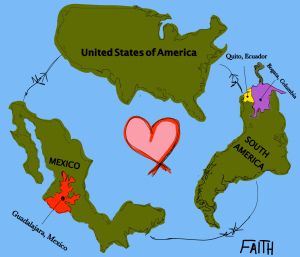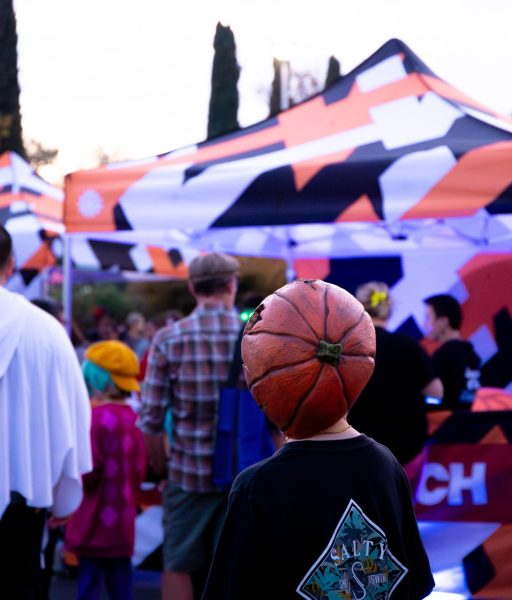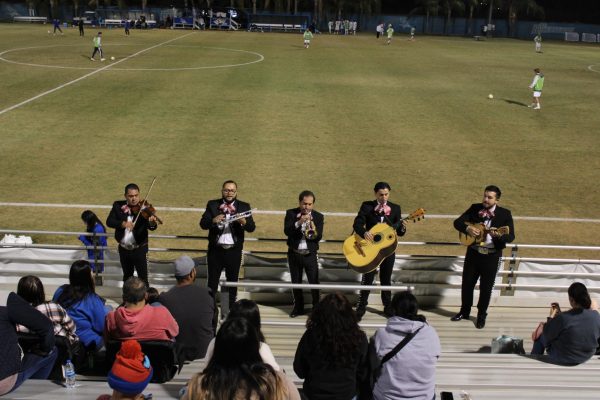When immigrants from Latin America find different kind of America inside the U.S.
December 2, 2021

Visiting a new country can be a culture shock for many people, but for immigrants, it’s no new feeling. Here are some ways young Latin American immigrants experienced culture shock when they first arrived in the U.S.
Greetings
One of the first things a person does when meeting others is a greeting, and, when departing, a goodbye. Mathias Franz came to the U.S. at the age of 15 from Guadalajara, Mexico. He is currently 20 years old and living in Denver, Colorado. He explained that in Mexico it was quite common to meet others in a very physical manner, which is not the case in America.
“I remember when I first came to the U.S., and I was at a church service. Toward the end, my parents were telling me to say goodbye to a woman who they met, and I kissed her cheek as I was saying goodbye. She gave me the most surprising face. My dad, who grew up in America, had to explain to me that it’s not normal to just kiss people on the cheek or hug here,” said Franz.
Franz said that, in Mexico, it’s normal to introduce yourself to a stranger with a kiss on the cheek or a hug. It’s viewed as friendly and even expected. Here in America, it’s more of an expectation to shake each other’s hands or just wave to each other as a form of a polite greeting. It’s not as physical unless it’s with very close individuals a person knows.
Animal as pets
Franz also goes in-depth into the treatment of animals that caused a culture shock for him. Franz is a dog walker and pet sitter, and he explains that his job wouldn’t be possible if he lived in Mexico. “In Mexico, for the most part, we didn’t treat animals the best. It was a norm to not want your dog inside the house, and have them outside. Even the idea of having like a dog walker would be funny if I told people in my neighborhood if I could walk their dogs,” Franz said chuckling.
He further explains that, in America, pets can be more part of the family or, for some, as an accessory. This is why there is more emphasis on pet sitters and dog walkers. He explains that it was definitely a culture shock to see how different people viewed the concept of pets. Julian Hernandez, 19, came from Bogatà, Columbia at the age of 12, and resides in Miami, Florida. He mentions that having pets as companions wasn’t typical in his former country.
“I own a cat. His name is Tobi. I wouldn’t have been able to have a cat in Bogata. People like pets like dogs there because they can also be protection or security, cats not so much,” Hernandez stated.
Hernandez said pets are important tools for a lot of people in his hometown, but here in America, the idea of having a pet doesn’t typically have to start with thinking of physical protection, but rather an emotional companion.
Safety
Bernardo Yepez is a 19-year-old and is currently an international student in America from Ecuador studying in Washington D.C. He’s been studying in the U.S. for a few months now, and when asked about what his biggest culture shock experience was, he answered safety. According to Insight Crime, Latin America is ranked as being the most dangerous region in the world. The United States ranks 56th when viewing the World Population Review’s crime rate by country as of 2021. Most Latin American countries rank much higher than the U.S. like Ecuador which ranks 37th in the crime rate report.
“Being here, I feel safe to go out. I used to not go out in Ecuador because I was scared of what was showing on the news or hearing about someone getting hurt or something. But here I feel like I can go out and not worry about it the same way,” Yepez stated.
Yepez explained that for him it was the biggest feeling of culture shock he experienced, and the feeling of safety makes it easier to enjoy time out with friends without worrying as much about a time to be home before dark and not being scared to check the news while he’s out.
Language
Hernandez said he got major culture shock from hearing different types of Spanish. Being from Columbia, he calls a straw “pitillo,” while Franz calls it “popote,” and Yepez refers to it as “pajita.” Hernandez said this isn’t something he would’ve discovered in Columbia.
Cuisine
America is well known for being a melting pot of diversity with it being filled with a mixture of different cultures. Franz said he found food fascinating when he came to the U.S. Where he was from in Mexico, there was some fast food, Mexican cuisine, and even North Asian cuisine, but he never found what he considers to be his favorite today, Indian cuisine.
“It’s such an amazing experience that really opens your eyes when you meet new people that you wouldn’t meet in Mexico for the most part, and get to partake in their food, music, art, and just overall culture,” he said.
When all were asked about Americanized Mexican food, such as Taco Bell, they all had the same reaction. They do not approve of Taco Bell or Del Taco, but Franz and Yepez said they enjoy Chipotle.






